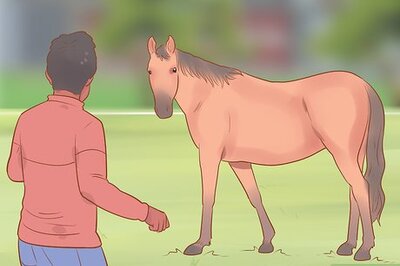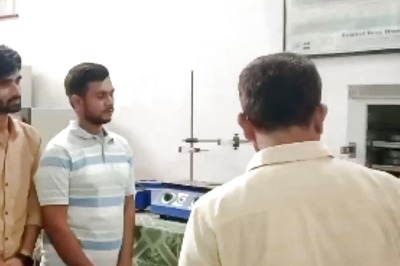
views
The Allahabad High Court recently affirmed the ruling of a family court that a first wife has the right to file an application under section 11 of the Hindu Marriage Act, 1955, seeking the declaration of her husband’s second marriage as illegal and void. Section 11 of the Act provides a remedy against void marriages. It states that on a petition presented by “either party thereto” (against the other party), any marriage can be declared null and void if it contravenes any one of the conditions specified in clauses (i), (iv), and (v) of section 5.
The family court had construed the word “either party thereto” in the light of the surrounding text and declared that it includes “the first wife”.
This interpretation was challenged before the high court.
The counsel for the appellant who was the second wife of a man heavily relied upon the series of judgments and ratio culled out in Madras HC’s judgement Lakshmi Ammal Vs Ramaswami Naicker and another (1960) to argue that the phrase “either party thereto” in section 11 of the Act strictly means two persons who are actual parties to the second marriage.
He submitted that the first wife has been given the remedy to apply for divorce or judicial separation.
On the other hand, the counsel for the first wife argued that the Hindu Marriage Act, 1955, is a social welfare legislation and the rule of restrictive interpretation will not apply in the interpretation of the phrase “either party thereto” for deciding the first wife’s right as accrued under section 11.
The high court division bench of Justices Saumitra Dayal Singh and Vinod Diwakar held that while interpreting a legislation, the legislature’s intention is to be gathered from the words they employ.
“The meaning of the statutory term can be gathered from its associated words. A word or phrase in an enactment must always be construed in the light of the surrounding text,” said the division bench.
The bench held that the term “either party thereto” shall be interpreted in harmony with “against the other party”.
Further, referring to the Madras HC single-judge bench’s ruling in the Lakshmi Ammal case, the court opined that the judge had failed to acknowledge a significant rationale behind the enactment of the Hindu Marriage Act, 1955, which was to eliminate the prevalent practice of polygamy in Indian society.
“Recognising the historical context and objectives behind the enactment, the Court should strive to interpret and apply the law in a manner that upholds the Act’s intent of eradicating polygamy while offering a fair and uniform resolution to related matters,” said the division bench.
To clarify the confusion on the issue, the bench held that the phrase “either party thereto” draws meaning from the explanation provided in section 7 of the Family Courts Act. Examining the surrounding text and context, it becomes evident that the intention is to give full effect to and interpret the Act purposefully, said the bench.
“If the first wife is deprived of seeking a remedy under Section 11 of the Hindu Marriage Act, it would defeat the very purpose and intent of the Act. The protection offered to legally wedded wives under sections 5, 11, and 12 of the Hindu Marriage Act would become insignificant in such a scenario,” said the division bench.
The bench was dealing with an appeal filed by the second wife of a deceased man against the decision of the family court which had allowed the man’s first wife to file an application under section 11 of the Act.




















Comments
0 comment